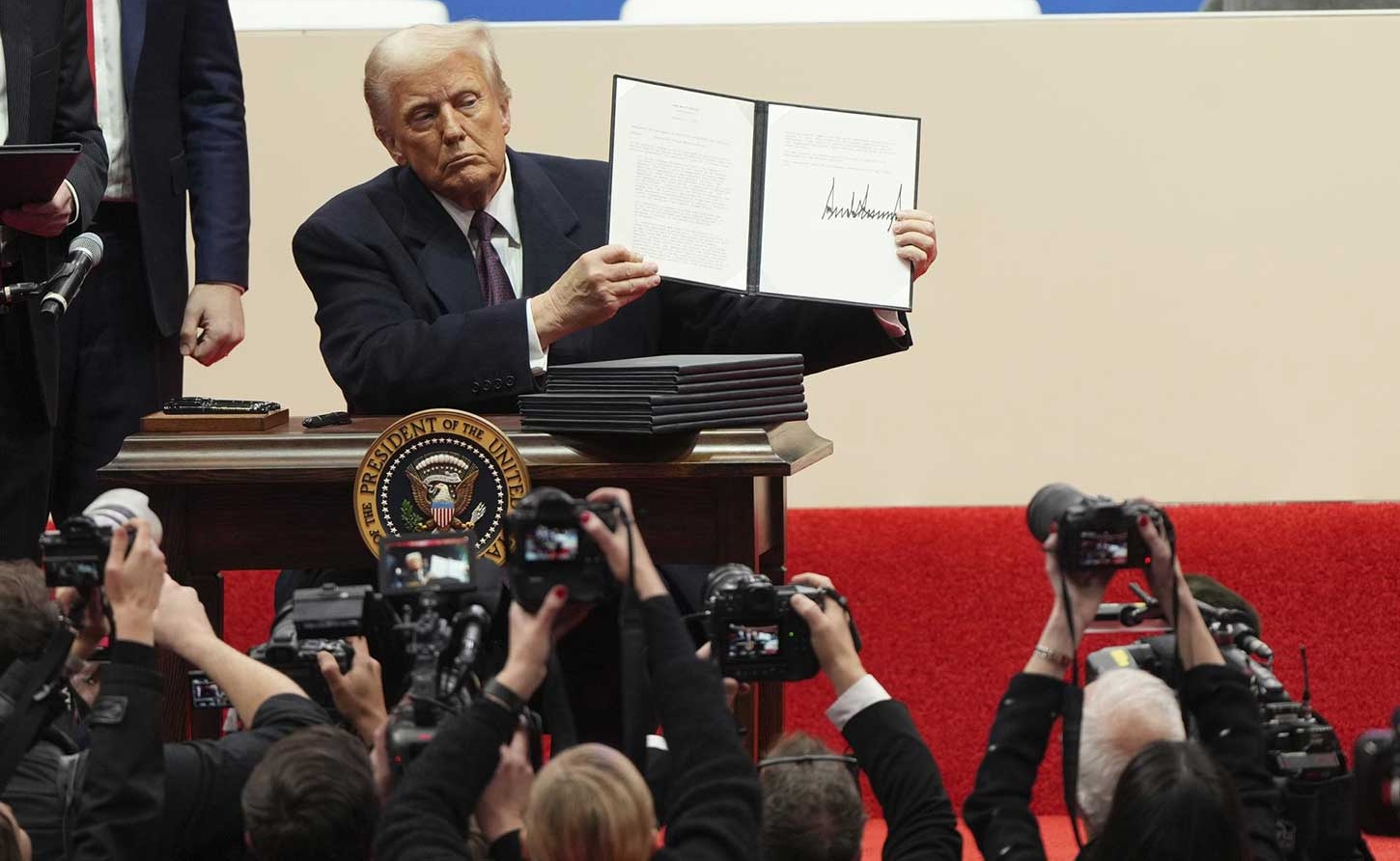UNITED STATES |Trump Targets 14th Amendment, Moves to End Birthright Citizenship by Executive Order

MONTEGO BAY, Jamaica, January 21, 2025 - In a seismic move that threatens to reshape American democracy, President Donald Trump signed an executive order Monday aimed at stripping citizenship rights from babies born on U.S. soil to non-citizen parents, setting the stage for what could be the most significant constitutional showdown of the decade.
The order, which directly challenges 150 years of constitutional precedent, specifically targets children born to mothers unlawfully present in the United States and those born to mothers on temporary visas when the father is neither a U.S. citizen nor permanent resident.
It marks one of the most ambitious attempts to reshape American immigration policy through executive action, striking at the heart of the 14th Amendment's birthright citizenship clause.
"The president has no power to do this," declares Michael Meyerson, professor at the University of Baltimore Law School. "The Constitution is crystal clear: if you are born on our soil, and you are not the child of an ambassador, you are an American citizen. That's been the rule since the 14th Amendment was ratified after the Civil War."
The American Civil Liberties Union has already launched a legal counteroffensive, filing a lawsuit to block the order. "Trump's order not only violates more than a century of Supreme Court precedent, it's a flagrant attack on immigrant communities and all our constitutional rights," the organization stated, vowing to defend what it calls "a core piece of our Constitution."
The executive order, set to take effect in 30 days, comes alongside other sweeping border initiatives, including the designation of drug cartels as foreign terrorist organizations and a renewed declaration of national emergency at the southern border.
While Trump acknowledges the legal challenges ahead, his administration appears ready for a constitutional confrontation that could fundamentally alter the definition of American citizenship.
In his executive order, Trump attempts to ground his authority in what legal experts call a novel interpretation of the 14th Amendment's text. The order contends that while the amendment rightfully overturned the Supreme Court's infamous Dred Scott decision, which had denied citizenship to African Americans, it "has never been interpreted to extend citizenship universally to everyone born within the United States."
The order's reach is both precise and sweeping. It directs all federal agencies to halt the issuance of citizenship documents to affected newborns and invalidates citizenship recognition documents from state and local authorities.
Within 30 days, the Departments of State, Justice, Homeland Security, and the Social Security Administration must realign their regulations – a bureaucratic undertaking that could create unprecedented challenges in how America processes citizenship claims.
The timing of the order, launched at the dawn of 2025, suggests a calculated political gambit. By forcing a Supreme Court confrontation over such a fundamental constitutional issue, the administration appears to be betting on the current Court's conservative majority to potentially reshape citizenship rights for generations to come.
Yet beyond the legal battleground, the order's practical implementation poses daunting challenges. Hospitals, state health departments, and vital statistics offices nationwide would need to dramatically overhaul their birth certificate procedures.
The burden of proving parental status at the time of birth threatens to create a bureaucratic labyrinth affecting millions of American families.
The reverberations are already being felt deeply within immigrant communities, particularly among the Caribbean diaspora in the United States. Caribbean American families, many of whom have built lives in America over generations, fear the order could be wielded as part of a broader effort to challenge their families' citizenship status.
Their concerns extend beyond the order's immediate impact on new births to what they view as a potential precedent for wider challenges to citizenship rights.
"We're looking at potentially creating a new class of stateless children born on American soil," warns Meyerson, underscoring the human toll of such a dramatic policy shift. "This isn't just about immigration policy anymore – it's about who we are as a nation and what principles we stand for."
The order's path through the judicial system seems predetermined. "The moment he tries to enforce it, or even threatens to enforce it, someone will sue," Meyerson explains. "The case will start in district court, and whoever loses will appeal. One of the realities of this moment in American history is we're not sure what the Supreme Court will do."
Legal scholars note that since the Supreme Court's landmark 1898 decision in United States v. Wong Kim Ark, which confirmed birthright citizenship for children of non-citizen parents, this principle has stood as a cornerstone of American immigration law. Now, that foundational precedent faces its most serious challenge in over a century.
As federal agencies brace for implementation and legal challenges mount, one thing remains clear: Trump's executive order has reignited a fundamental debate about the very essence of American identity.
In challenging the 14th Amendment's interpretation, the administration has sparked a constitutional crisis that could redefine what it means to be American in the 21st century.
The outcome of this looming Supreme Court battle won't just reshape immigration policy – it will determine the future of American citizenship itself.
-30-

 Ar
Ar  En
En